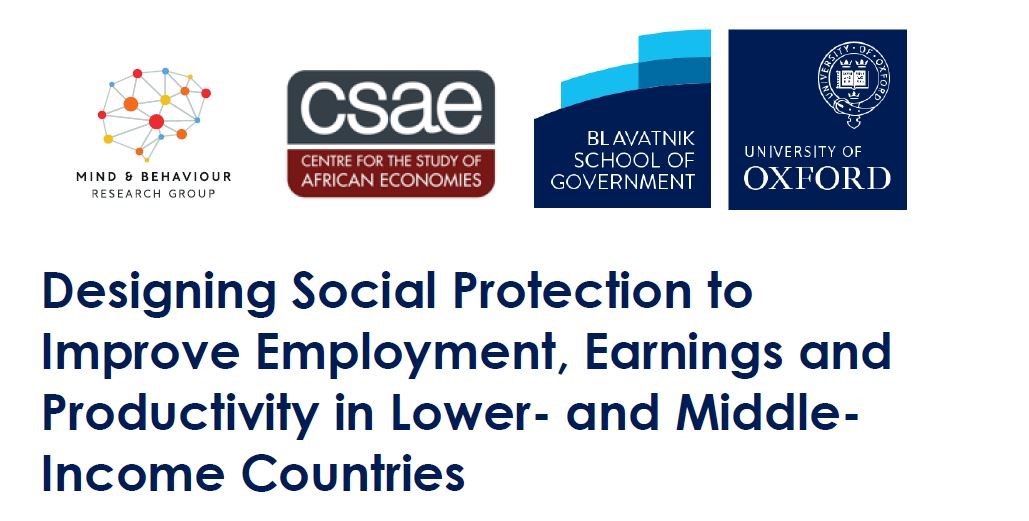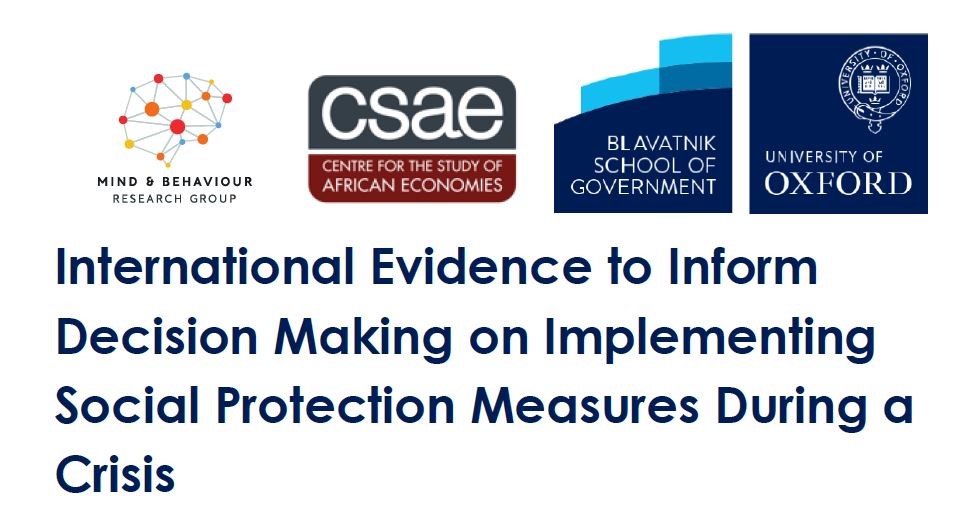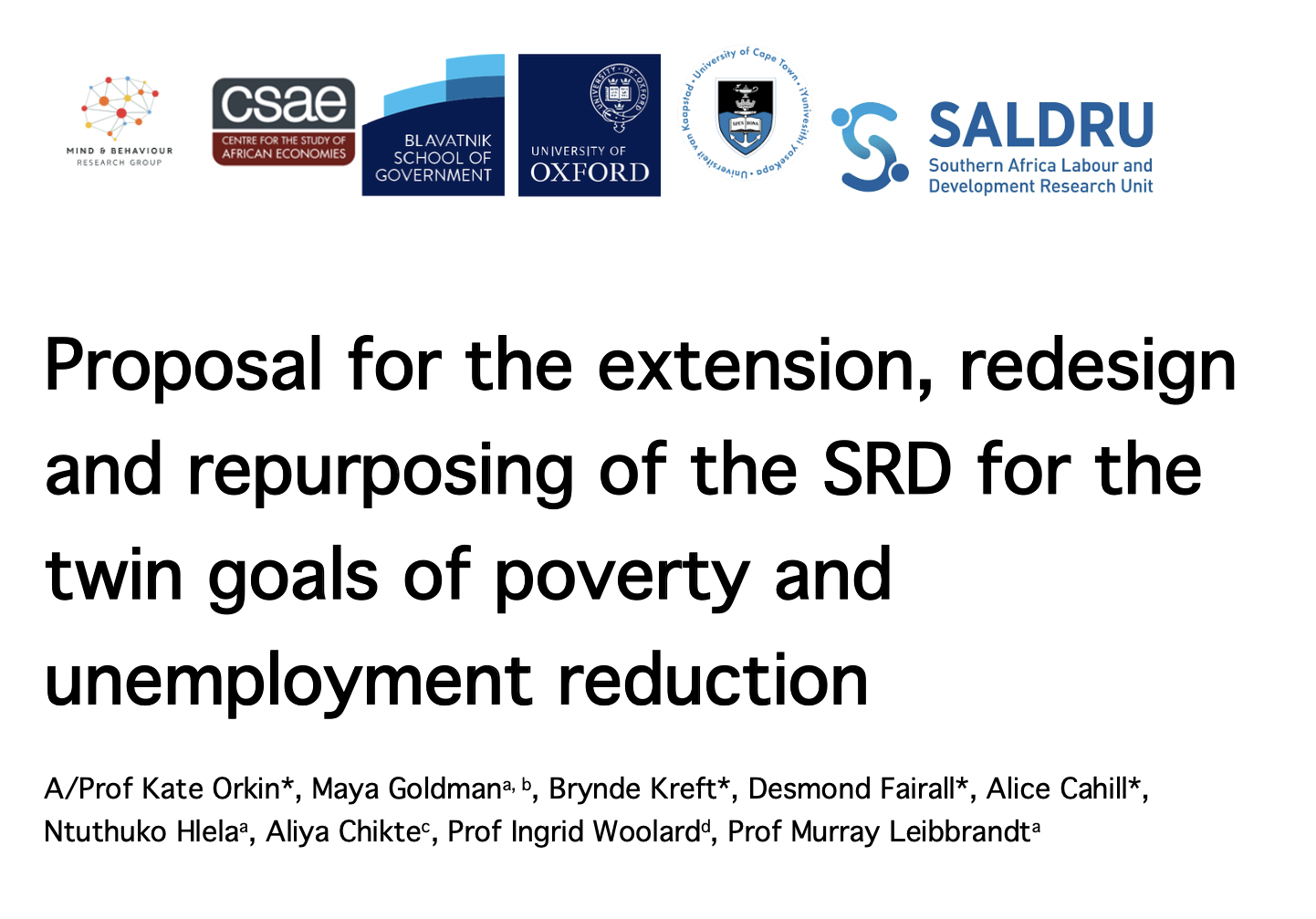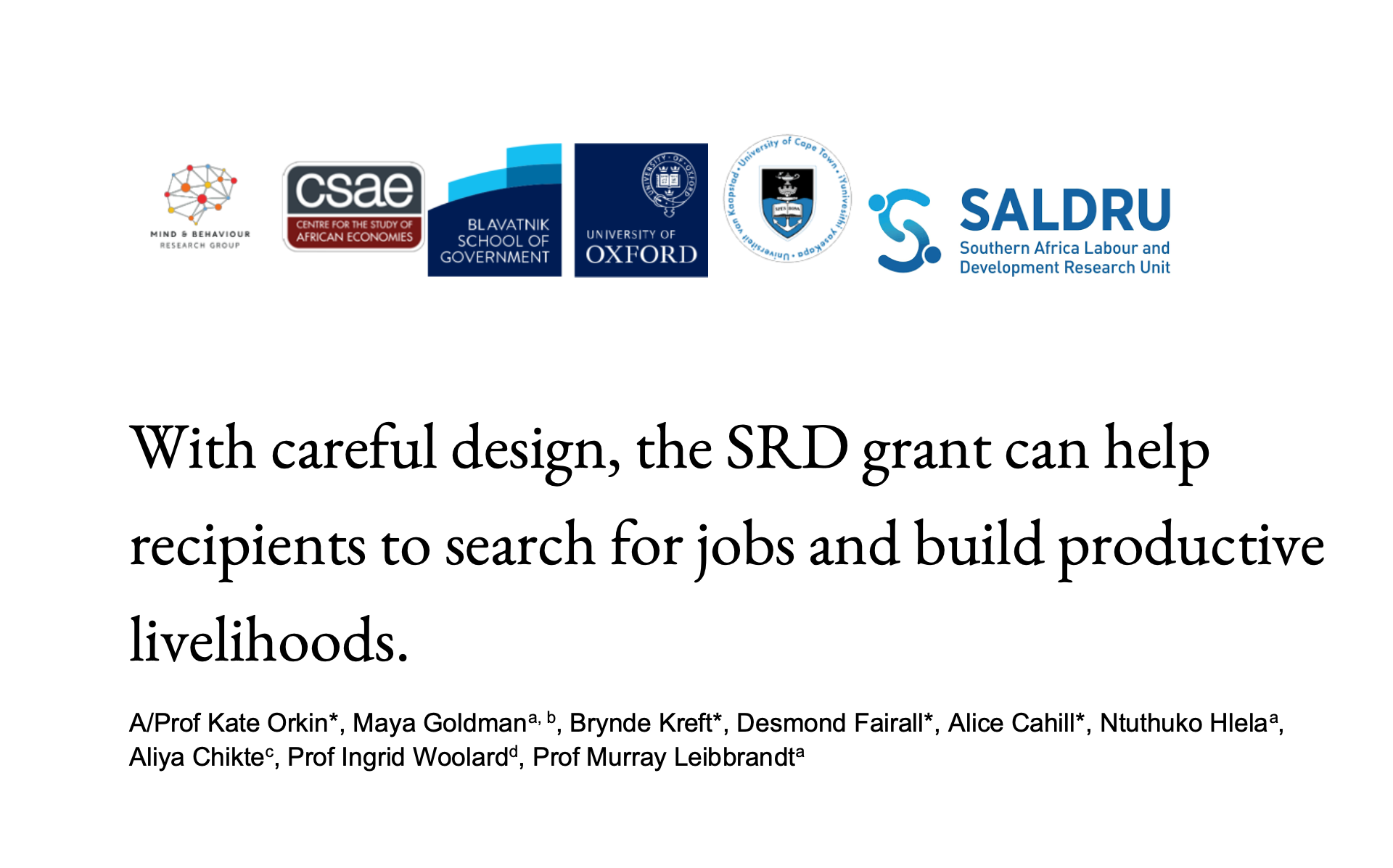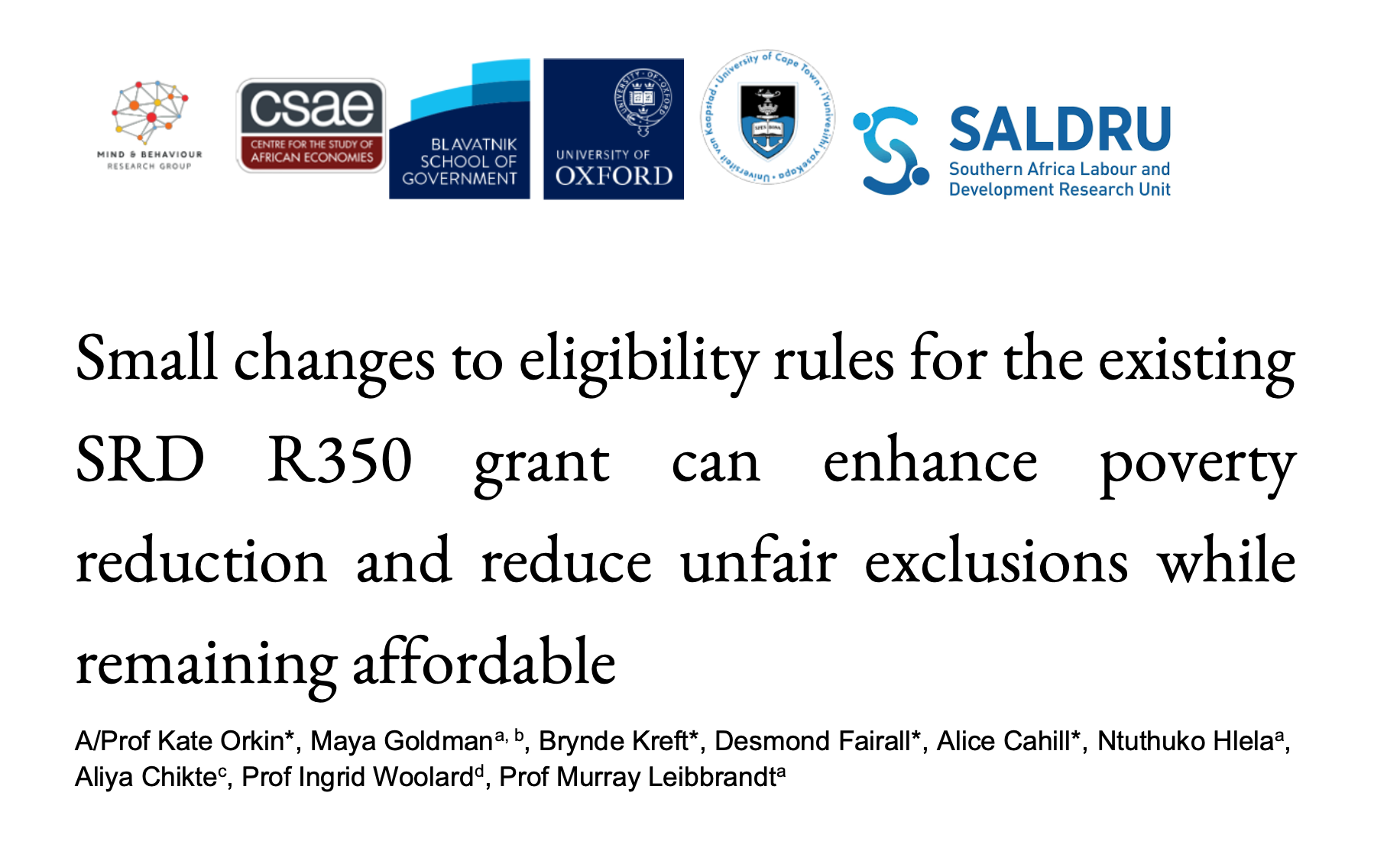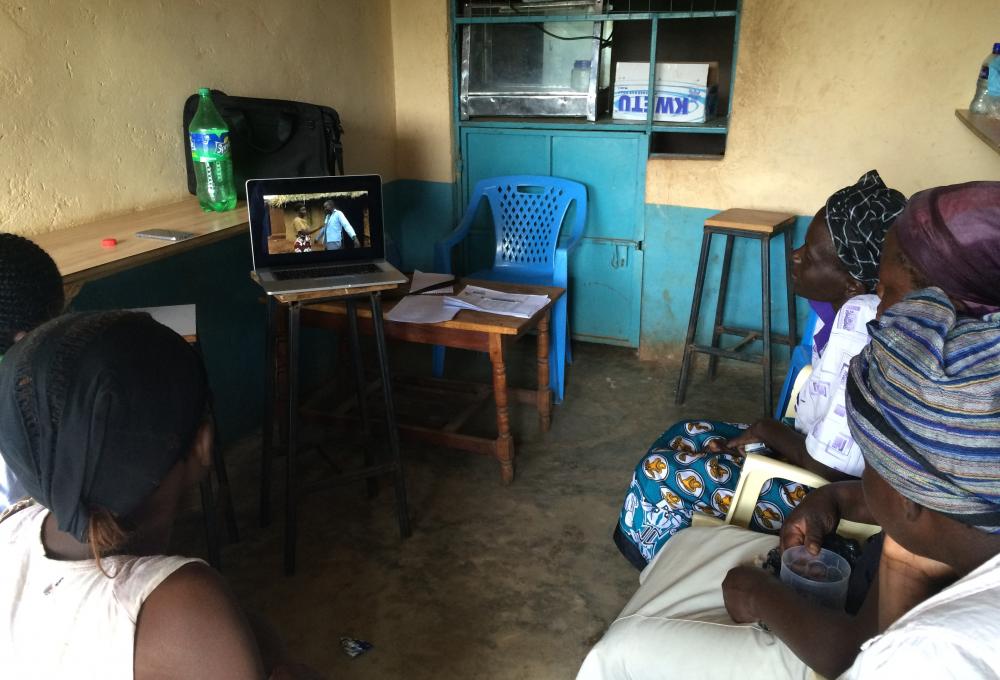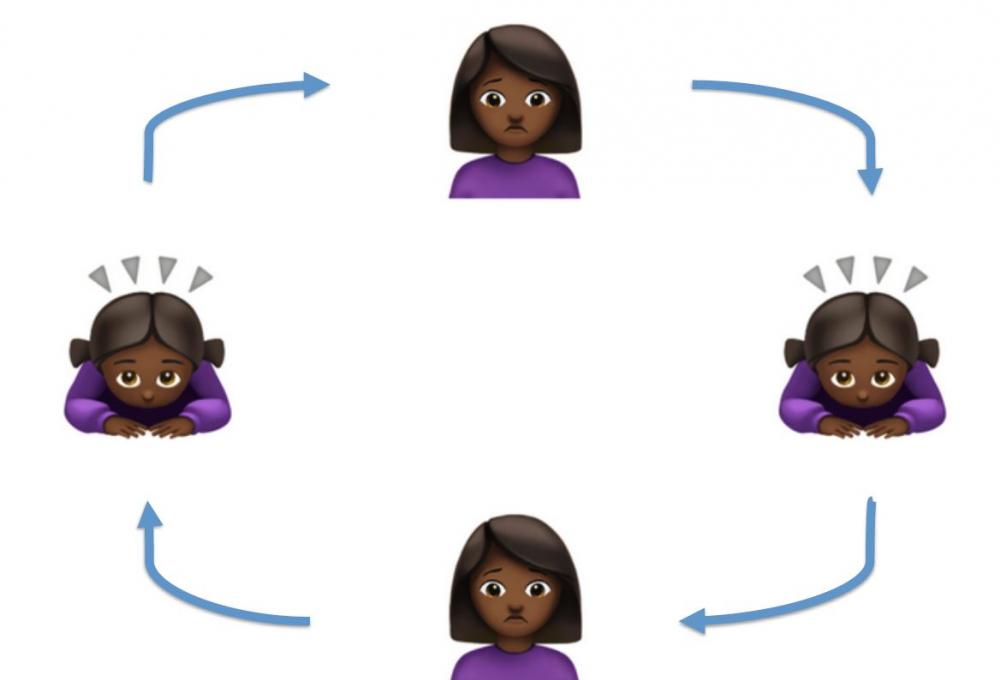The implementation guide (toolkit) to support the implementation of a cost-effective labour market intervention developed by Carranza, Garlick, Orkin and Rankin (2020) is now available to download from the MBRG website. The intervention outlines a skills assessment programme that benefits both work-seekers and prospective employers by addressing information frictions between the two parties. We are grateful for the positive feedback from the World Bank's David McKenzie over on the Development Impact blog.
The prominent role of social protection during the COVID-19 pandemic has opened the door for a reappraisal of existing programmes, globally. In the aftermath of the crisis, urgent priority should be the development of effective and sustainable social protection systems; these should aim to cover as much of the working population as possible. Workers who were not covered by existing social protection schemes, particularly informal workers, have suffered disproportionately and this highlights the need to extend social protection coverage.
The MBRG team have been working with policymakers to learn how to rebuild social protection programmes after the pandemic. We provided key learnings based on reviews of the latest literature from LMIC contexts. In these reviews and policy notes, we seek to share these learnings and support policy makers in implementing social protection following on from the disruption.
